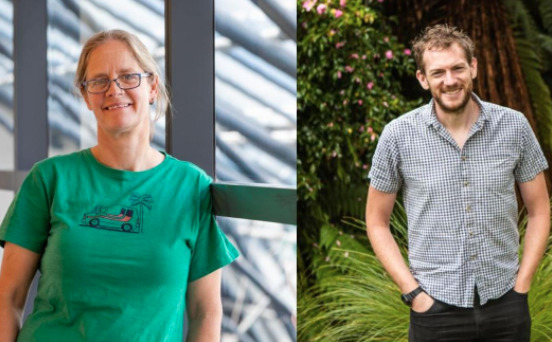Associate Professor Alex James and Professor Michael Plank have received the University of Canterbury’s Research Medal at a ceremony held yesterday in recognition of their outstanding research.
Since early March 2020, the pair have been key members of the national team of scientists at award-winning research centre Te Pūnaha Matatini, which provided a series of mathematical models informing the Government’s efforts to combat COVID-19.
Associate Professor James and Professor Plank provided valuable information that contributed to Aotearoa New Zealand’s pandemic planning and response, including use of the four-tier alert level system, testing regimes and digital contact tracing. Their modelling has also been used to understand the potential impact of the disease on Aotearoa’s at-risk communities.
Associate Professor James says she feels honoured to receive the award and lucky to have worked alongside some fantastic researchers and students.
She left Te Pūnaha Matatini’s COVID-19 modelling group earlier this year but remains a member of the research centre.
“The research was very much a joint effort involving a team of scientists who stepped up when they were needed most. I am proud of the contribution this research has made to better understanding the pandemic and New Zealand’s response to it,” she said.
“I am also very grateful for the incredible support I’ve been given by the University and my colleagues here, without whom this work wouldn’t have been possible.”
University of Canterbury Deputy Vice-Chancellor of Research and Innovation Professor Ian Wright says Associate Professor James and Professor Plank’s efforts have undoubtedly led to lives being saved.
“Their world-beating research and deep engagement with the Government has had significant health and social impacts,” he said.
“They have combined pioneering science, clear communication and lightning speed to keep pace with the challenges of a rapidly evolving pandemic. They’ve also played a role in providing leading science communication to the public.”



